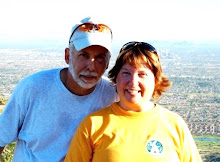Yesterday I had one of those incredible experiences where
one of my favorite little girls asks me a rather interesting question. ‘What is it like to be poor?’ I continued
without asking her whether she ever felt like she was poor. I explained how
when we handed out water to the homeless downtown that many of those people
didn’t have much of anything. They didn’t have a home; a bed, food, friends or
any money and that probably would be considered poor. I continued to say that
real poverty is seen more in countries far away. It is hard to fathom kids
going to sleep on dirt every night without any food.
I know that my special little friend doesn’t have much but
seldom ever complains. It is clear from her inquisitive question that she
didn’t consider herself poor. Yet, most of my volunteers coming from outside
our community would consider 8 people living in a 1,100 square foot house to be
poor. What I love about this story is that my little friend is being raised in
a real family where she doesn’t have any fear or concern about anything. She is
always very thankful for everything she gets.
My heart breaks for her because her dad died when she was
very young. She is very fortunate to have an awesome uncle who has been there
for her from day 1! She is also been cared for by her grandma from birth and
understands the notion of real sacrificial love through her grandma’s daily
actions. What stands out is wholeness has little to do with how much money you
have in the bank or whether you have the largest flat screen on your living
room wall!
I had the privilege to be involved with Habitat for Humanity
for over eight years. It is during my Habitat involvement that I learned about
the key to seeing the difference between giving a hand out and a hand up. The
conversation about relief work versus doing development work is very difficult.
There are circumstances where people are starving to death and need urgent
medical care. It is these types of situations that you help someone regardless
of asking questions and get them food and a doctor or nurse. The challenge is
being able to step back and better understand what has caused the situation.
I know that the word poverty does bring up a picture of a
little child who looks like they are four years old but is actually sixteen. I
know that most involved with doing community work talk about the difference
between giving someone a fish to feed them for a day instead of giving them a
fishing pole. The reality is that even with a fishing pole there is no guarantee
that the pond will have fish or be clean. So the path of helping someone become
self-sustainable starts with seeing poverty as a series of broken relationship
that led to someone dying of starvation or a disease that could be curable.
Yes, someone’s relationship with their family impacts their
ability to get a job, stay in school, take good care of their home and be a
doer and giver instead of a couch potato and taker in life. Our relationship
with God is a huge factor in becoming someone that can have hope in life as
they face difficult circumstances where most would quit or assume that someone
else will rescue them. What I’m learning from little friend’s question is that
too often we make excuses for our circumstances and don’t take ownership. She
is able to see her life as being beautiful and full regardless of what others
might think. I love to say that the cup can either be half full or half empty.
My little friend sees her half full cup as being not just full but overflowing.
I know that my hope for my little friend is that she can
grow up in a healthily environment where she sees her life as a gift from God
with a bright future. I know that her mom, uncle and grandma have made this a
reality.


No comments:
Post a Comment